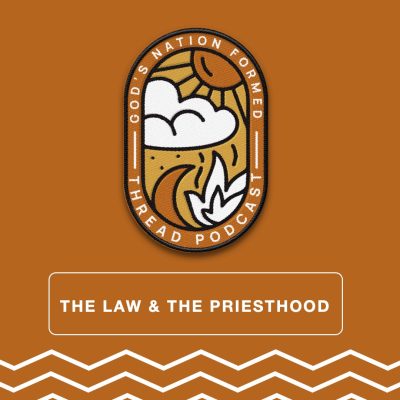How does the law of Jesus compare to the law of Moses? The Torah is the closest thing we get to a set of rules from God. But even amongst the 613 commands, there is narrative, mystery, and tension. No set of rules could be complete enough to guide the human heart. The Spirit knew we needed more and has given us a rich set of 66 books. The result is that we are often unable to just turn to a simple answer for the things we face. Rightly handling the word of God means that we must engage with the Spirit, engage with spiritual people, research theology and history, and above all else, pray.
Today’s Scriptures:
Matthew 5:17-18
Matthew 5:48
James 1:22-25
James 2:8-12
Galatians 2:15-21
Hebrews 2:14-18
Hebrews 4:14-15
Hebrews 5:1-6
Hebrews 7:11-26
1 Peter 2:4-9
Luke 5:12-16
Leviticus 14:1-9
Check out the Thread podcast on the Law and the Priesthood:
Have you ever found yourself mystified by the intricacies of Leviticus, or wondered how ancient laws could connect to our modern spiritual lives? Tanner Versage joins us to offer a fresh perspective on the roles of the priesthood and the law within the grand narrative of the Bible. We journey from the sands of Sinai to the heart of God’s covenant with Israel to seek the relevance of this ancient wisdom in our relationship with the divine today. Tanner sheds light on the balance between God’s awe-inspiring otherness and His intimate desire to dwell among His people. We confront the challenges of reflecting divine character in our daily walk, discussing the balance between being in the world but not of it. Our conversation today is an exploration of how the law provides foundational principles for justice and community, all while ensuring that worship and sacrifice remain accessible to everyone.
Discussed:
– Tanner Versage introduces his work and experiences with the book of Leviticus and its implications for contemporary faith
– The intersection of law and priesthood in the wilderness era and its manifestation of God’s promises to Abraham
– The balance between divine initiative and human obedience within Israel’s covenant with Yahweh
– The Ten Commandments as a reflection of God’s holiness and the formation of Israel as a nation meant to bridge heaven and earth
– The concept of holiness as being set apart for God, and its representation in the laws given to the Israelites
– Leviticus’s provisions for the poor as an example of the accessibility of worship and the importance of justice and community
– The role of the priesthood in mediating between the holy and the profane and their various duties, including sacrifices and education
– The gravity of the priests’ responsibilities and the consequences of failing to uphold them, illustrated by the story of Aaron’s sons
– The symbolism of the tabernacle curtain and its connection to the Garden of Eden, representing separation from the divine
– The second giving of the law in Deuteronomy as a reminder of God’s leading and the relationship between God and Israel


